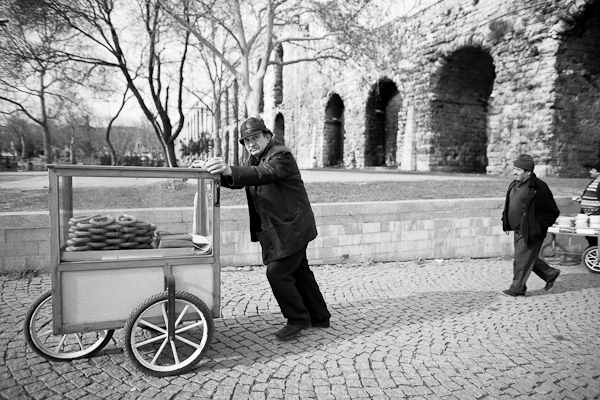
Our friend Colin has been pestering us to show “the truth” of the places we visit, rather than the stuff you can find in “any art history text book.” He wants to see the gutters, poverty, deprivations of every kind. Mostly that’s just his own twisted personality, but it presents some problems. Turkey is simply not that depraved. Yes, there are issues. There is unemployment. There is poverty by Western standards. But in a country that is 99% Muslim, there is a definite lack of depravity.
This isn’t Vancouver’s East Side. There are no overt drug or alcohol addicts. Even young Turks prefer to drink tea or juice when they go out to hit the down. Crime is minimal, and tends to be of a mild “fleece the foreigners” variety. On the whole, Istanbul has presented the type of warm hospitality Turkey has long been known for, blighted occasionally by the fact that everyone is trying to sell you something. Sure, sometimes this hospitality is more sincere than others (our hostel staff for instance, have been honestly helpful and welcoming, even cooking us dinner one night). Often it is little more than a remnant of a simpler time or an act meant to fulfill visitors’ expectations. After all, in a country that gets over 30 million visitors per year, it’s simply not practical for the average Turk to treat every one he meets as a “visitor from God.” Unfortunately, with tourism on this scale, the authenticity of traditional Turkish culture and hospitality is bound to wane, at least in major centers like Istanbul. That said, we have had meaningful exchanges with a number of Turks already, learning something about them, sharing something about us. This doesn’t happen in most countries, where foreigners are treated politely but distantly.
I did mean it literally when I said that everyone is trying to sell you something. In a country with unemployment issues, an influx of foreign tourist capital, and extremely lax regulations on business dealings, everyone is an entrepreneur. Turkish free-market entrepreneurship makes Alberta look like a communist state. Old ladies in traditional dress sit in the public squares hocking packets of tissues or bowls of bird seed to feed the flocks of pigeons. Each morning, old men carefully lay out displays of their merchandise (old leather shoes, rotary dial telephones, ancient calculators, circuit boards), setting up shop where they please and moving it when the grass looks greener elsewhere. Younger men might become “touts,” the charming but aggressive salesmen who hang out in busy places imploring passersby to follow them to a nearby carpet or leather shop. Don’t need a carpet or leather jacket? That’s fine, they also know a a great hotel, the best Turkish bath, and the perfect place to find an authentic hookah.
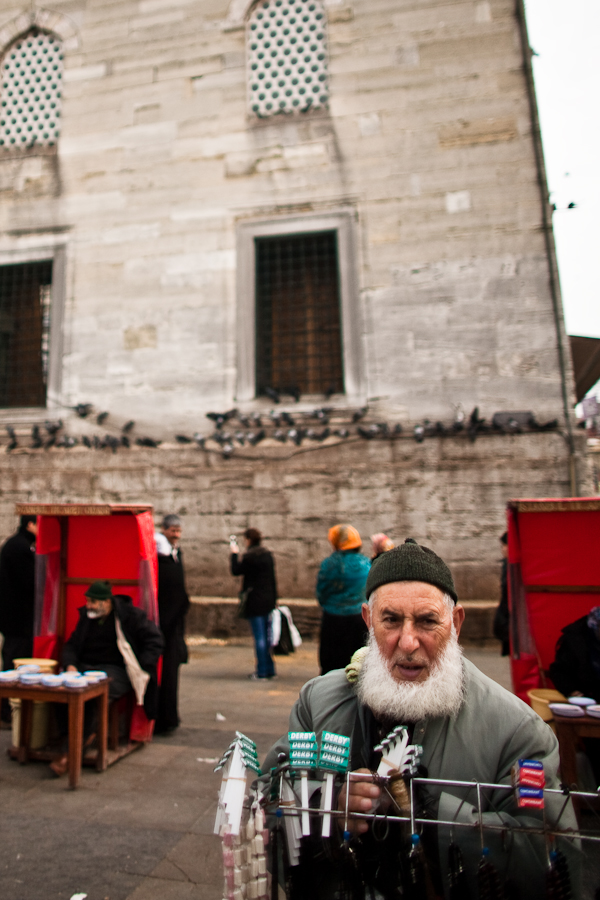
These touts get a kickback for bringing customers in the door, and who can blame them for trying? Indeed, that statement sums up the Turkish attitude to a lot of things. If a man can make some money by selling junk on a street corner, why should anyone care to stop him? If a tout can waggle a sale out of a naive tourist flush with cash, why shouldn’t he?
Bargaining and prices are based on the same principal. While it can be off-putting to a Westerner, used to firm, clearly-established prices, the Turkish need to haggle is firmly rooted in both tradition and common-sense. Discussing and agreeing on a price is not just a way to show mutual respect, it is a tacit acknowledgement that the transaction involves mutually competing interests. It is a way for both sides to personalize the transaction, and to come away from the deal feeling each got a fair shake. It’s not a way to swindle, but rather a way to push for a better deal. If a Turk can take advantage of a Westerner, inexperienced in this type of transaction, and get a bit more for their product or service than they would from a fellow Turk, why shouldn’t they? This has already happened to Laura and I a few times, although we are getting more savvy about the whole thing.
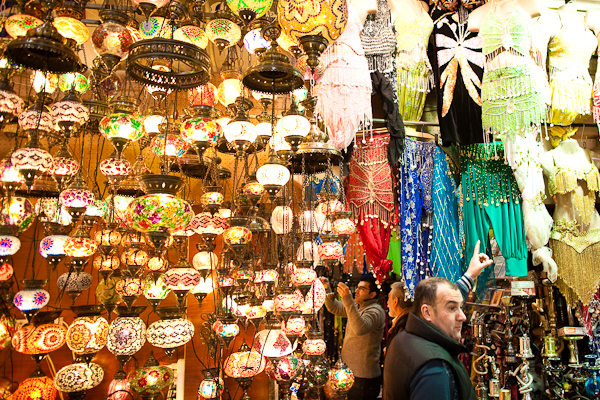
In Canada, this type of truly free market street commerce would be completely regulated, requiring expensive permits and driving many of these people out of business. Those who could afford a permit would face the inevitable ‘not-in-my-backyard’ mentality so prevalent in North America, being driven into specific locations far away from the actual dollars and cents of their potential customers.
Meanwhile, well-to-do Turks might actually own a storefront, where they will typically specialize in one type of merchandise, or try to sell anything and everything. Whole neighbourhoods are dedicated to a single ware; we’ve walked down a street where every shop sold types of scales (digital scales, analogue scales, bathroom scales, industrial scales), another where every storefront was stacked with safes. There are shopping districts for camera gear, art supplies, clothing, shoes, leather goods, fresh produce, and spices, among other things. Of course, tourist trinkets and souvenirs are both found in dedicated areas and sprinkled throughout the city. The ubiquitous kebab stand, with its rotating spit of chicken or lamb is dotted throughout this landscape as well, selling tasty meat and veggie sandwiches for about $1.50 CDN.
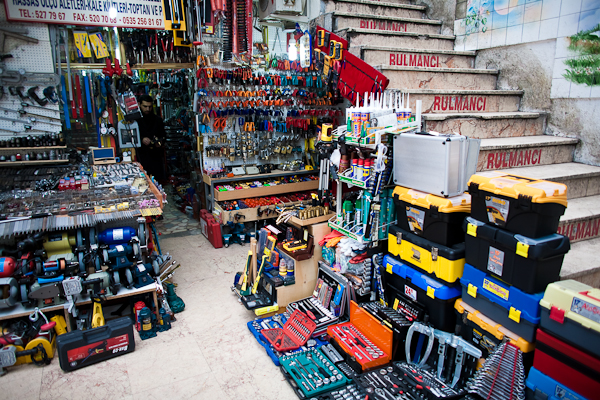
Istanbul is Turkey’s largest city (though not its capital, as many believe; Ankara is), and certainly the most visited place in the country. We are staying in Sultanahment, Istanbul’s old city center, which is also its most touristy neighbourhood. I guess we’ll have to wait until we get out of the city to see how well these impressions hold up for the country as a whole. Turkey has a population of over 70 million; twice the size of Canada. It is also far more ethnically and geographically diverse than a person would at first assume. Give us a month here, Colin, and I’m sure the picture will change.
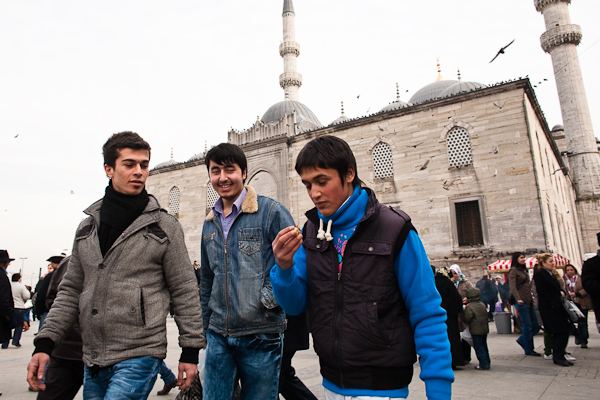
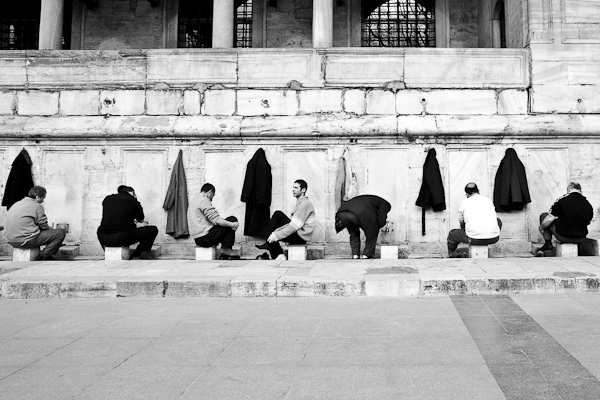
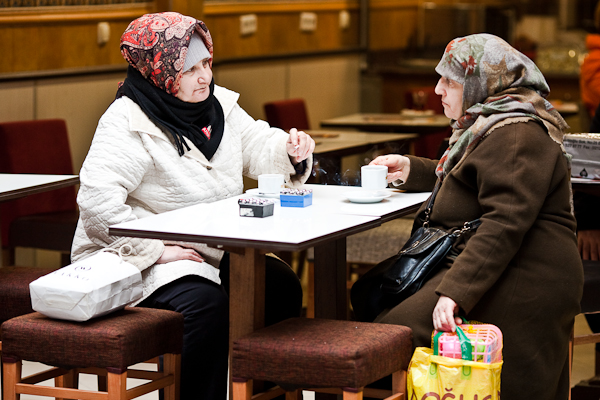
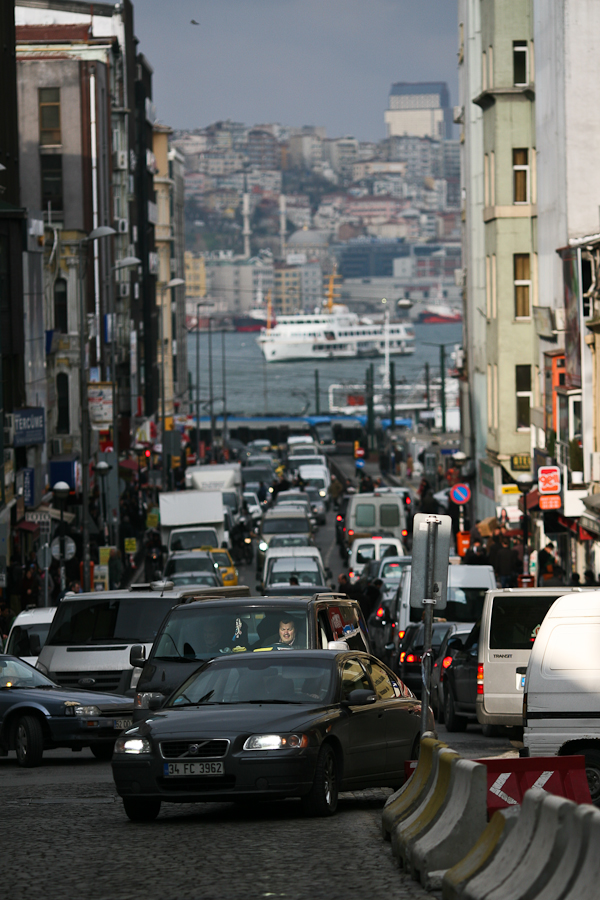
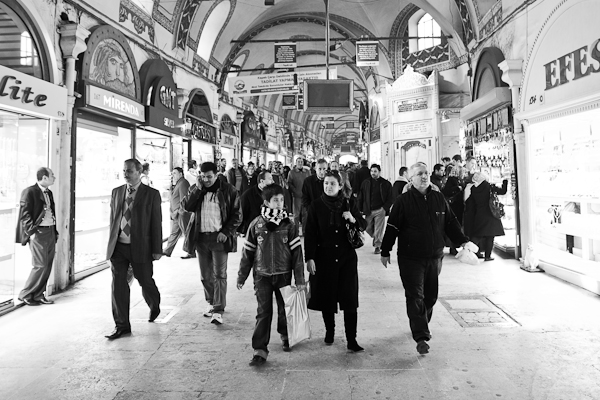
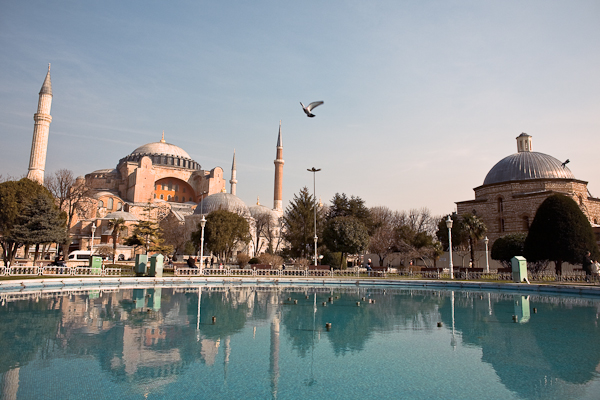
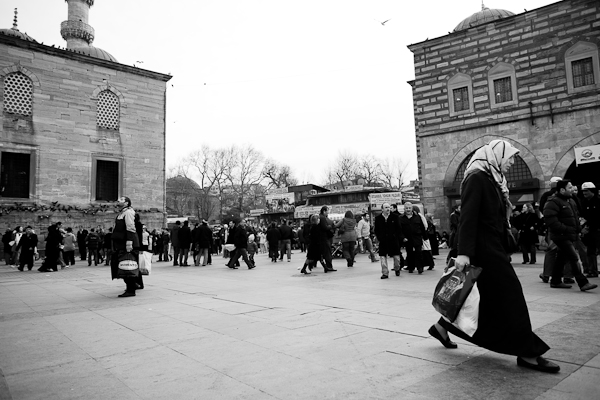

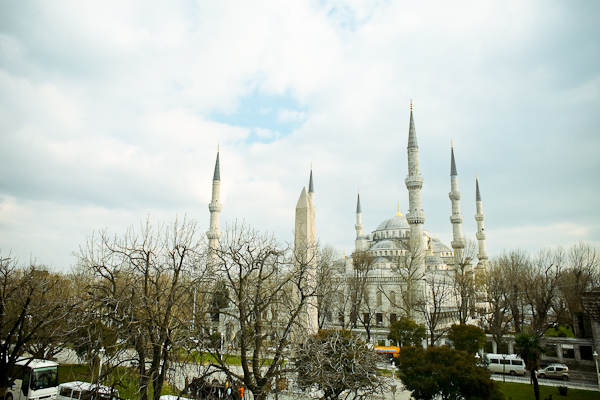
Leave a Reply